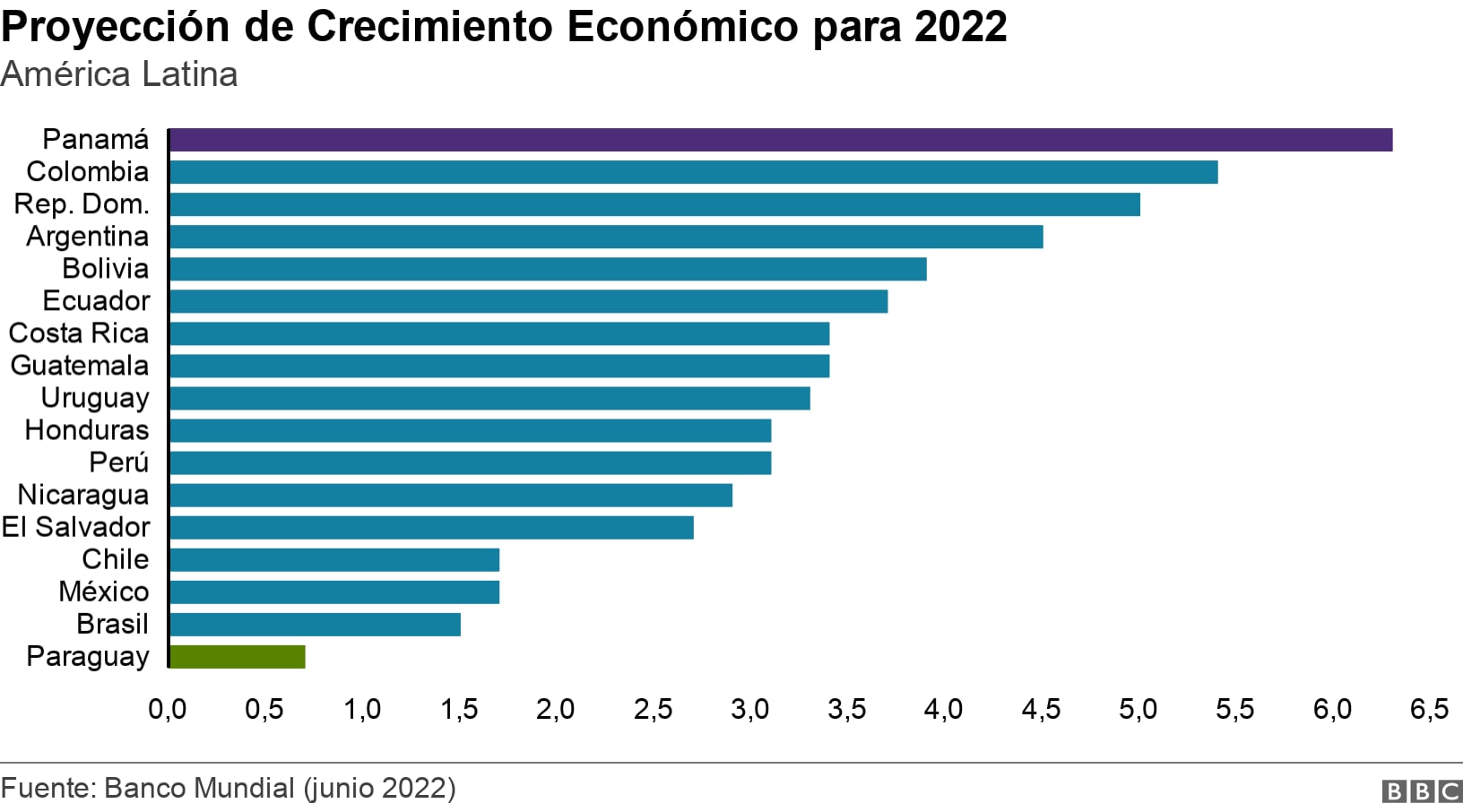A Latin America It’s going to be a little better than expected.
The World Bank slightly raised its projection for regional economic growth for this year to 2.5%, which represents an increase of 0.2% from its April estimate.
With the war in Ukraine as a backdrop, inflation soaring and interest rates climbing at full speed, the picture remains very complex.
But… don’t Latin American countries benefit from the high prices of the raw materials they export?
In the short term, yes. The problem is that this extra income in the fiscal coffers is going to disappear quickly due to the difficulties that the global economy is currently experiencing.
Looking ahead, the World Bank expects the prices of commodities remain “substantially higher” in 2022, although “growth benefits will be held back due to a slow response in the production of some basic products and due to the increase in the costs of inputs, including energy and fertilizers,” the institution specified.
In this sense, the increase in the prices of raw materials doesn’t look like boom lived in the region a few years ago. On the contrary, the wave of stagflation (low growth and high inflation) that is reaching various parts of the world does not allow exporting countries to enjoy the benefits they achieved in the past.
For now, the specialists explain, one of the great challenges of the authorities of each country is to find the magic formula to control the increase in the cost of living, but at the same time, not to slow down economic growth too much with the rise in interest rates.
The growth ranking in the region
Panama (with a projected growth of 6.3%), Colombia and the Dominican Republic are the three countries with the best prospects for increasing the Gross Domestic Product (GDP) for this year, according to the World Bank.
And the least favored are Mexico and Chile (both with an estimated growth of only 1.7%), followed by Brazil and Paraguay.
Haiti is the only country in the region that would have an economic contraction of -0.4%.

“Cumulative crises”
The World Bank’s forecast adds to the warnings made this week by the Economic Commission for Latin America and the Caribbean (ECLAC) about the social impact that the war in Ukraine will have on the region.
The global economic tsunami caused by the war will negatively impact growth for the next three years and will cause an escalation in poverty.
“The production model has changed,” said Mario Cimoli, Acting Executive Secretary of ECLAC.
“It will have more persistent effects on inflation than people realize.”
According to the organization, the average annual economic growth in Latin America would reach only 1.8% this year, a much lower estimate than that of the World Bank.
Cimoli explained that in addition to the war, the region is experiencing the consequences of “a decade of accumulated crisessuch as the international financial crisis, the economic tensions between the United States and China, and the pandemic.”
This scenario would cause one in three people in the region to live in poverty.
What will happen in the rest of the world?
The World Bank report published this Tuesday maintains that the global economy will grow 2.9% this year.
There are “many headwinds, in particular high commodity prices and continued monetary tightening.”

With the gigantic uncertainty about the political situation resulting from the war, the agency has warned that there are several complications on the horizon, such as “increased financial instability, continued supply tensions and worsening food insecurity.”
exactly the increased hunger It has become one of the biggest concerns due to the gigantic increase in the price of food.
In Europe and Central Asia, the economy will contract “markedly” this year (-2.9%), predicts the agency.
But it does not project a year of recession for the rest of the world, but rather an economic slowdown, with one big exception: the Middle East and North Africa.
In those regions, the agency expects the benefits of higher energy prices to outweigh the negative impacts.
After all, there is always someone who wins when the others lose.
Source: Elcomercio
I, Ronald Payne, am a journalist and author who dedicated his life to telling the stories that need to be said. I have over 7 years of experience as a reporter and editor, covering everything from politics to business to crime.

:quality(75)/cloudfront-us-east-1.images.arcpublishing.com/elcomercio/DHL32VTGCBA47NJ5MBQDRJ75ZY.webp)

:quality(75)/cloudfront-us-east-1.images.arcpublishing.com/elcomercio/O5GX54NEIJCEHLXBBX3I4VE3DI.jpg)
:quality(75)/cloudfront-us-east-1.images.arcpublishing.com/elcomercio/YUJEZEZLL5A2BLBZTG2HNSNMBA.png)


